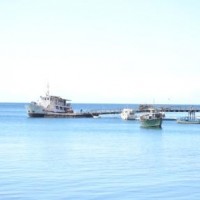No one knows for sure if Malawi has oil. But, as prospecting work gets underway, residents of one of the world’s poorest countries wonder whether oil is a blessing that could make them wealthy overnight or a curse that might destroy their way of life.
As fishermen untangle their nets on a Lake Malawi beach in Salima, they worry. “We don’t want oil to be found in the lake”, says Harry Symon, aged 42, glancing out to the clear blue waters of the world’s ninth-largest lake.
No oil has been discovered yet in the lake. It is not even certain there will be any. But, as prospecting work takes off, locals are already worrying about how its discovery could change their lives.
More than 1.5 million Malawians living on the shores of the lake, which measures nearly 30 000 square kilometres, depend on fishing for their livelihoods.
“Without fishing, we could not even send our children to school”, says Symon, head of a local fishermen’s association.
“Our fish are sold all over the country. If there was an oil spill, the fish would die and the fishermen starve. ”
The oil money would not benefit our village. Only politicians would get rich.” Backers counter that oil would give a massive boost to the economy of one of the world’s poorest countries. ”
“It could have a huge impact”, said a senior official at the finance ministry. About 80% of the residents of the south-east African country are subsistence farmers and nearly a half live on less than a dollar a day.
Tanzania
However, there are no concrete figures about extra income or jobs from the oil, since the amount of any potential reserves is not known. Such lack of detail, combined with environmental concerns and scepticism about whether they will see the money has left many Malawians cool to the project.
The London-based company Surestream Petroleum was the first to be granted a licence to explore for oil in Malawi in 2011.
If its environmental impact assessments are approved by the government, it can get down to drilling. Three other companies, Rakgas of the United Arab Emirates, Pacific Oil and Gas of Singapore and the South African company SacOil have also been granted licences for prospecting.
Despite several weeks of attempts, dpa could not get a comment from Surestream.
However, SacOil said its work is progressing. “We have completed a satellite survey, and are in the process of carrying out an environmental and social impact assessment”, said vice president for operations Bradley Cerff.
There could be oil and also gas both inside and outside the lake, Cerff said. If oil is found, “any government that is in power then will go for it” and allow drilling to start, said the finance ministry official, who spoke to dpa before the 20 May elections.
“If there is oil, we will research the facts and consider the matter carefully”, said Jean Kalilani, secretary general of the Democratic Progressive Party, a few days before her party won the poll.
Oil prospecting has been delayed by a row with neighbouring Tanzania, which claims half of the lake, and of the potential oil reserves as its own.
Tanzania earlier denied reports that it had placed gunboats on the lake. More recently, residents in the area were alarmed by planes flying at a low altitude, but Dar es Salaam said they were undertaking a geological survey.
Talks mediated by former Mozambican president Joaquin Chissano deadlocked in March, but Tanzania has said it wants to re-launch them with Malawi’s new government.
Representatives of the oil industry say oil can be extracted without danger to the lake, which home to hundreds of fish species unique to that place, as well as a popular tourist attraction.
Cerff pointed to SacOil’s environmental impact study: “Every company with prospecting licences in Malawi will have to make sure it is done in a socially and environmentally responsible manner.”
But if there was oil disaster, “Malawi would not have the equipment nor the manpower to contain it”, says Christopher Mwambene, executive director of the co-ordination union for rehabilitation of the environment (CURE).
He and other critics point to countries such as Nigeria or Equatorial Guinea, where vast oil reserves have enriched the elite but failed to benefit the poor masses.




